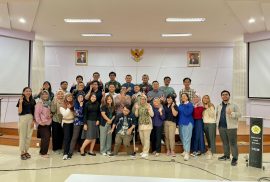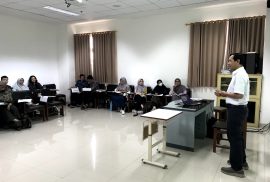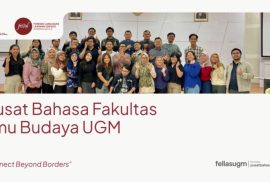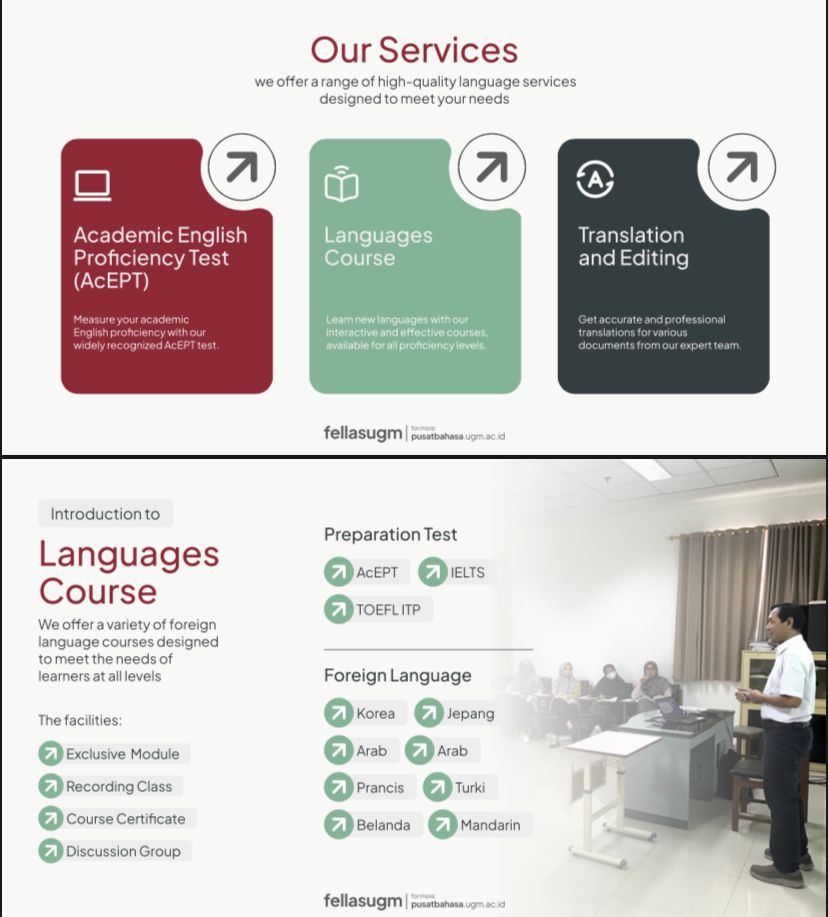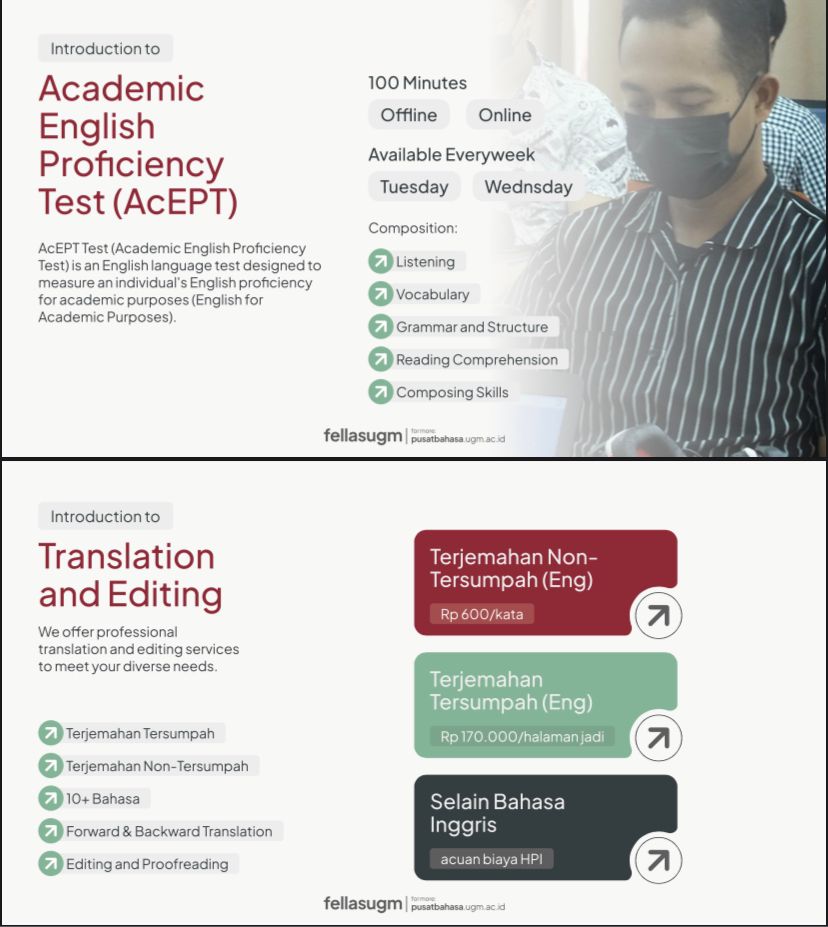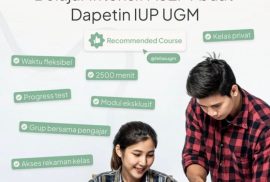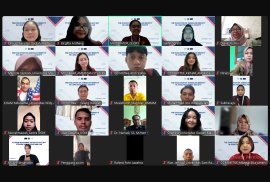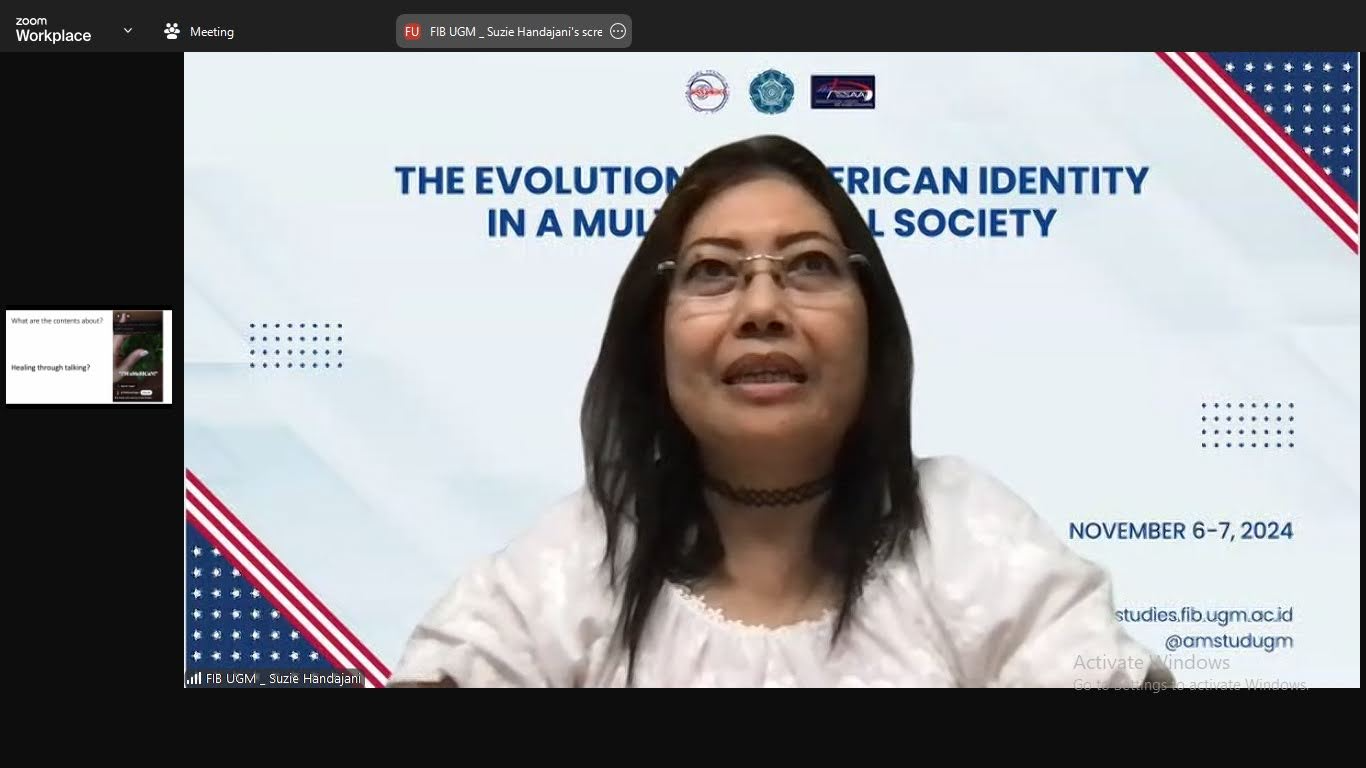AcEPT, IELTS, TOEFL
Best Seller Course
Benefit:
Exclusive module
25 intensive class sessions
Progress test
Mentor discussion forum
Access to class recordings
Course certificate
Course Implementation Period
February 10-March 14
Offline: 16.30-18.10 WIB (100 minutes)
Online: 18.30-10.20 WIB (100 minutes)
NB: Adjustment of course hours during Ramadhan will be discussed in the course discussion group.
Course enrollment timeline for Feb-Mar 2025 period
Registration = Jan 2-Feb 2
Participant Confirmation = Feb 3-4
Payment = Feb 5-7
Implementation = Feb 10th
How to Get:
Participants fill out the course registration form according to the course to be selected.
After the registration is closed, prospective participants will be contacted for reconfirmation by the Language Center Admin via WhatsApp.
If the confirmed course participants meet the quota (7 people), prospective participants proceed to the course payment stage.
Course participants pay the course fee to the account sent via WhatsApp.
Participants log in to their respective course groups.
Course registration form:
Online
| AcEPT | ugm.id/AcEPT25On |
| IELTS | ugm.id/TOEFL25On |
| TOEFL | ugm.id/IELTS25On |
Offline
| AcEPT | ugm.id/AcEPT25Off |
| IELTS | ugm.id/TOEFL25Off |
| TOEFL | ugm.id/IELTS25Off |

